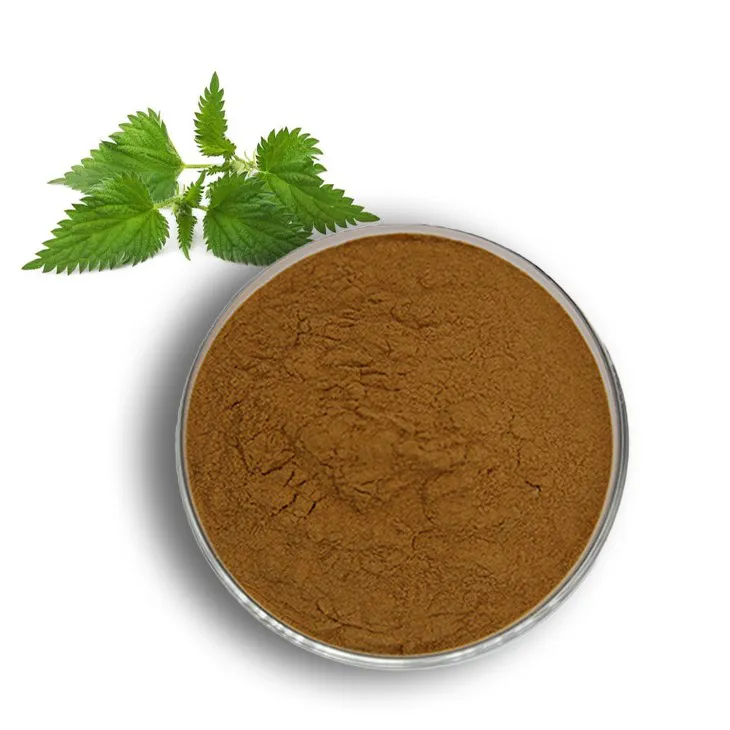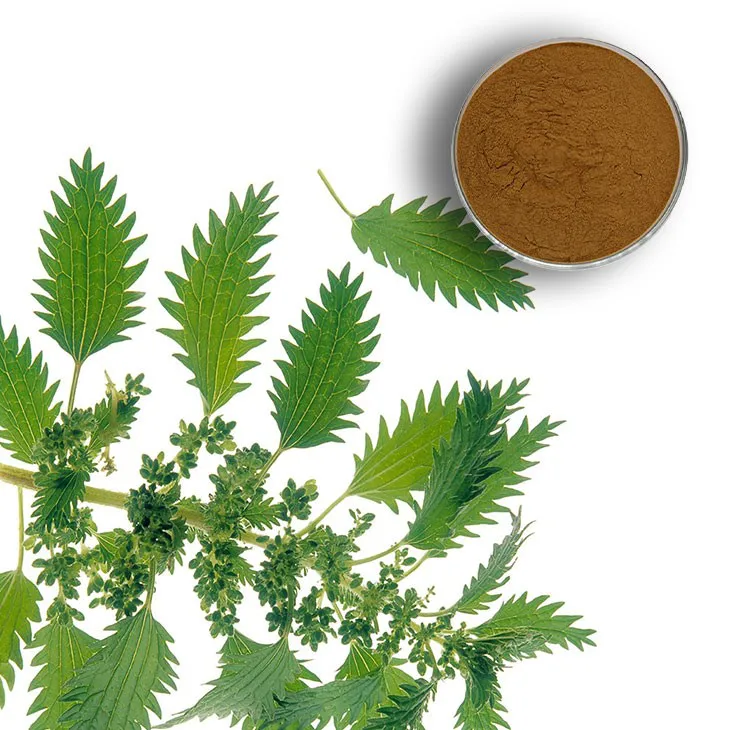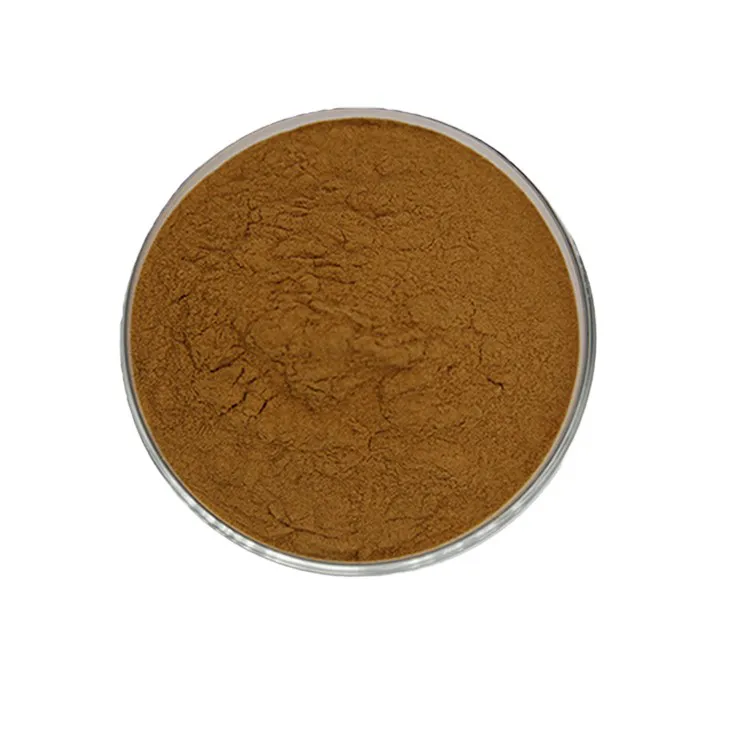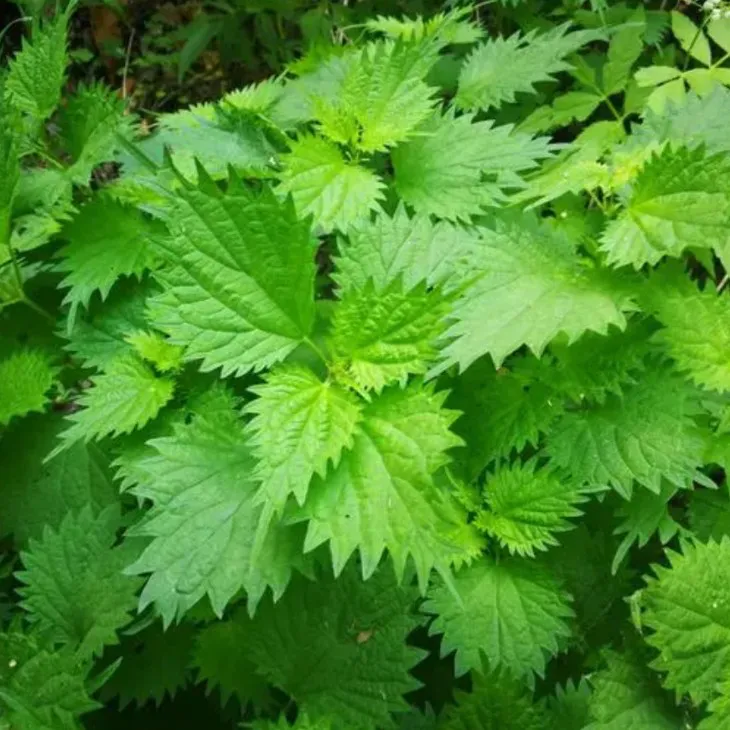- 0086-571-85302990
- sales@greenskybio.com
Nettle Root Extract: What Are the Benefits and How to Take It?
2024-11-12

Introduction
Nettle Root Extract has been used for centuries in traditional medicine. It is derived from the roots of the nettle plant (Urtica dioica). This natural extract is gaining popularity in modern times due to its potential health benefits. In this article, we will delve deep into the various benefits of Nettle Root Extract and also discuss the proper ways to take it.

Benefits of Nettle Root Extract
1. Hair Health
Nettle root extract can play a significant role in promoting healthy hair. It contains nutrients that are beneficial for the hair follicles. One of the key components is silica, which is known to strengthen the hair shafts. This can result in less hair breakage and overall healthier - looking hair.
Moreover, nettle root extract has been shown to have a positive effect on hair growth. It can stimulate the hair follicles, promoting the growth of new hair. This is especially beneficial for those who are experiencing hair loss or thinning hair.
2. Skin Health
When it comes to skin health, nettle root extract offers several advantages. It has anti - inflammatory properties, which can be helpful in reducing skin redness and irritation. For example, if you have sensitive skin or skin conditions such as eczema or psoriasis, nettle root extract may provide some relief.
Furthermore, the extract is rich in antioxidants. These antioxidants can protect the skin from free radical damage, which is one of the main causes of premature skin aging. By neutralizing free radicals, nettle root extract can help keep the skin looking youthful and healthy.
3. Joint Health
Nettle root extract may also contribute to better joint health. It has been traditionally used to relieve joint pain and inflammation. Some studies suggest that it can inhibit certain enzymes that are involved in the inflammatory process in the joints.
For those suffering from arthritis or other joint - related problems, nettle root extract could potentially be a natural alternative or complementary treatment. It may help reduce pain, improve joint mobility, and enhance the overall quality of life.

How to Take Nettle Root Extract
1. Capsules
One of the most common ways to take nettle root extract is in the form of capsules. Capsules are convenient and easy to use. They are available in different strengths, usually measured in milligrams (mg). When choosing a nettle root extract capsule, it is important to look for a high - quality product from a reputable manufacturer.
The recommended dosage can vary depending on the individual's needs and health conditions. However, a typical starting dosage for general health benefits might be around 500 - 1000 mg per day. It is advisable to start with a lower dose and gradually increase it if needed, while monitoring for any possible side effects.
2. Tinctures
Nettle root tinctures are another option. A tincture is a liquid extract that is usually made by soaking the nettle root in alcohol or a mixture of alcohol and water. Tinctures are often more concentrated than capsules.
To take a nettle root tincture, it is typically measured in drops. The general recommended dosage is around 30 - 60 drops, diluted in a small amount of water, two to three times a day. However, tinctures may have a stronger taste compared to capsules, and some people may find it less pleasant to take.
3. Teas
Nettle root tea is a traditional and natural way to consume the extract. To make nettle root tea, you can use dried nettle root. Boil a cup of water and add about 1 - 2 teaspoons of dried nettle root. Let it steep for 10 - 15 minutes, then strain the tea and drink it.
You can drink nettle root tea one to three times a day. It is a milder form of consuming the extract compared to tinctures and capsules. However, the taste of nettle root tea may be an acquired one for some people.

Precautions and Side Effects
While nettle root extract is generally considered safe for most people when taken in appropriate amounts, there are some precautions to be aware of.
Some individuals may be allergic to nettle plants. If you have a known allergy to nettles, it is best to avoid nettle root extract. Additionally, pregnant or breastfeeding women should consult their healthcare provider before taking nettle root extract, as there is limited research on its safety during pregnancy and lactation.
In terms of side effects, some people may experience mild gastrointestinal discomfort such as nausea, stomach cramps, or diarrhea when taking nettle root extract. If these symptoms occur, it is recommended to stop taking the extract and consult a healthcare professional.

Conclusion
Nettle root extract offers a range of potential health benefits for hair, skin, and joint health. Whether you choose to take it in the form of capsules, tinctures, or teas, it is important to follow the proper dosage guidelines and be aware of any potential precautions and side effects. As with any natural supplement, it is always a good idea to consult with a healthcare provider before starting to take nettle root extract, especially if you have underlying health conditions or are taking other medications.
FAQ:
What are the main benefits of nettle root extract for hair?
Nettle root extract can be beneficial for hair in several ways. It may help to strengthen hair follicles, which can lead to reduced hair loss. It also contains nutrients that can nourish the hair, potentially making it look shinier and healthier. Some of the compounds in nettle root extract may stimulate hair growth, contributing to thicker and more voluminous hair over time.
How does nettle root extract improve skin health?
Nettle root extract has anti - inflammatory properties, which can be very helpful for the skin. It may reduce redness and irritation, making it suitable for those with sensitive skin or skin conditions like eczema or acne. Additionally, it contains antioxidants that can combat free radicals and protect the skin from damage, potentially reducing the signs of aging such as wrinkles and fine lines.
What is the connection between nettle root extract and joint health?
Nettle root extract may have a positive impact on joint health. It has anti - inflammatory effects that can help to reduce swelling and pain in the joints. Some studies suggest that it may also help in the management of conditions like arthritis by improving joint function and mobility. The extract may contain compounds that can support the repair and maintenance of joint tissues.
How should one take nettle root extract?
The method of taking nettle root extract can vary. It is often available in supplement form, such as capsules or tablets. When taking it as a supplement, it is important to follow the recommended dosage on the product label. Some people also make nettle root tea. To make the tea, dried nettle root can be steeped in hot water for about 10 - 15 minutes. However, it is advisable to consult a healthcare provider before starting any new supplement regimen.
Are there any side effects of taking nettle root extract?
While nettle root extract is generally considered safe for most people when taken as directed, some individuals may experience side effects. These can include mild digestive issues such as stomach upset, nausea, or diarrhea. In some cases, skin irritation may occur if the extract comes into direct contact with the skin. People with allergies to plants in the nettle family should avoid taking nettle root extract. Also, pregnant or breastfeeding women should consult their doctor before using it.
Related literature
- Beneficial Effects of Nettle Root Extract on Health"
- "Nettle Root Extract: A Comprehensive Review of its Properties and Applications"
- "The Role of Nettle Root Extract in Promoting Wellness"
- ▶ Hesperidin
- ▶ citrus bioflavonoids
- ▶ plant extract
- ▶ lycopene
- ▶ Diosmin
- ▶ Grape seed extract
- ▶ Sea buckthorn Juice Powder
- ▶ Beetroot powder
- ▶ Hops Extract
- ▶ Artichoke Extract
- ▶ Reishi mushroom extract
- ▶ Astaxanthin
- ▶ Green Tea Extract
- ▶ Curcumin Extract
- ▶ Horse Chestnut Extract
- ▶ Other Problems
- ▶ Boswellia Serrata Extract
- ▶ Resveratrol Extract
- ▶ Marigold Extract
- ▶ Grape Leaf Extract
- ▶ blog3
-
High purity olive leaf extract
2024-11-12
-
Lavender oil extraction method
2024-11-12
-
100% organic virgin sea buckthorn fruit oil
2024-11-12
-
Lotus leaf extract powder factory in China
2024-11-12
-
China aged garlic extract supplier
2024-11-12
-
Deer antler extract powder manufacturer
2024-11-12
-
Saw palmetto extract vs whole herb
2024-11-12
-
Baicalin
2024-11-12
-
Diosmin
2024-11-12
-
Aminolevulinic acid
2024-11-12
-
Hedyotis Diffusa Extract
2024-11-12
-
Hesperidin
2024-11-12
-
Coix Seed Extract
2024-11-12
-
Resveratrol extract
2024-11-12
-
Clove Powder
2024-11-12
-
Artichoke Extract
2024-11-12
-
Scutellaria Extract
2024-11-12





















